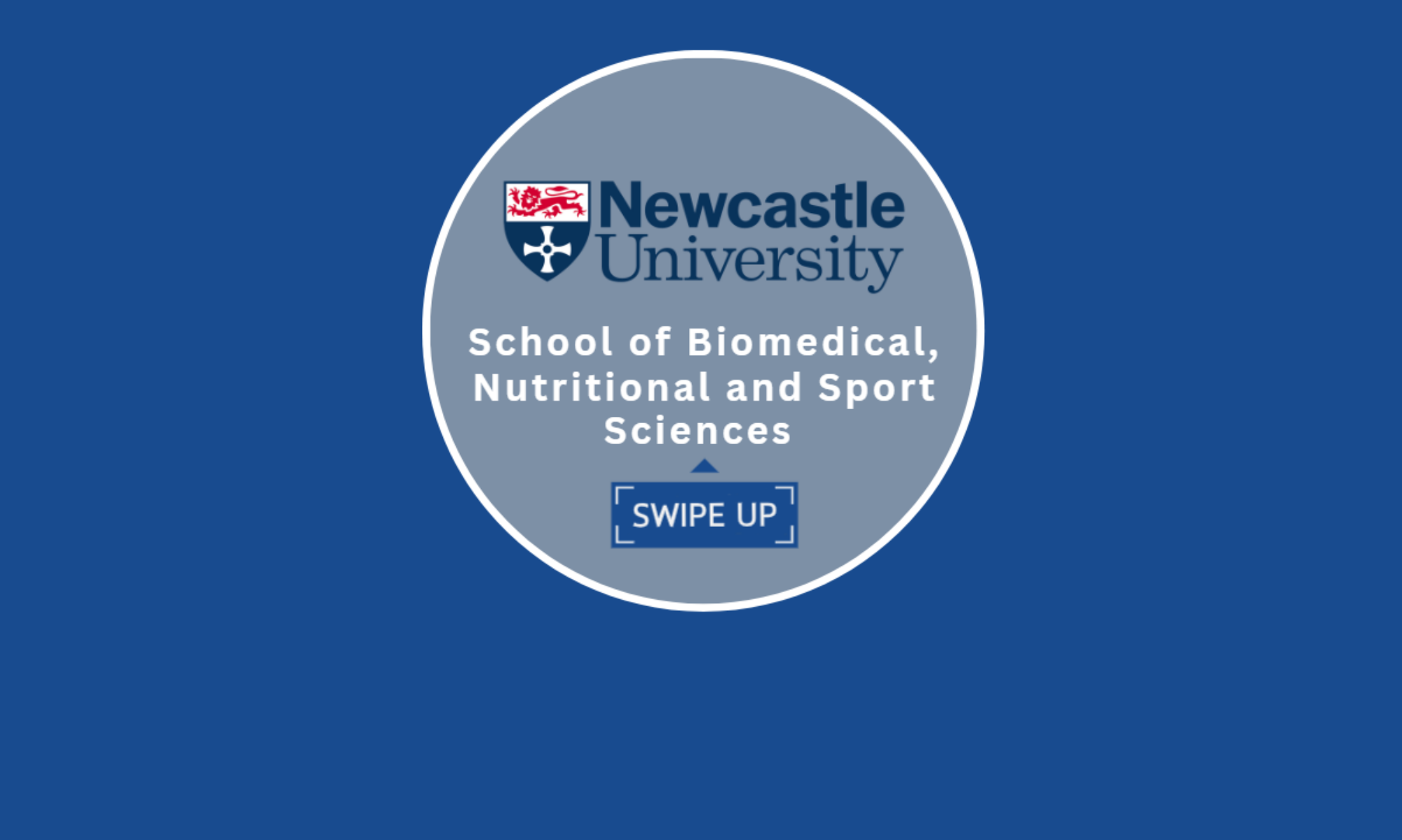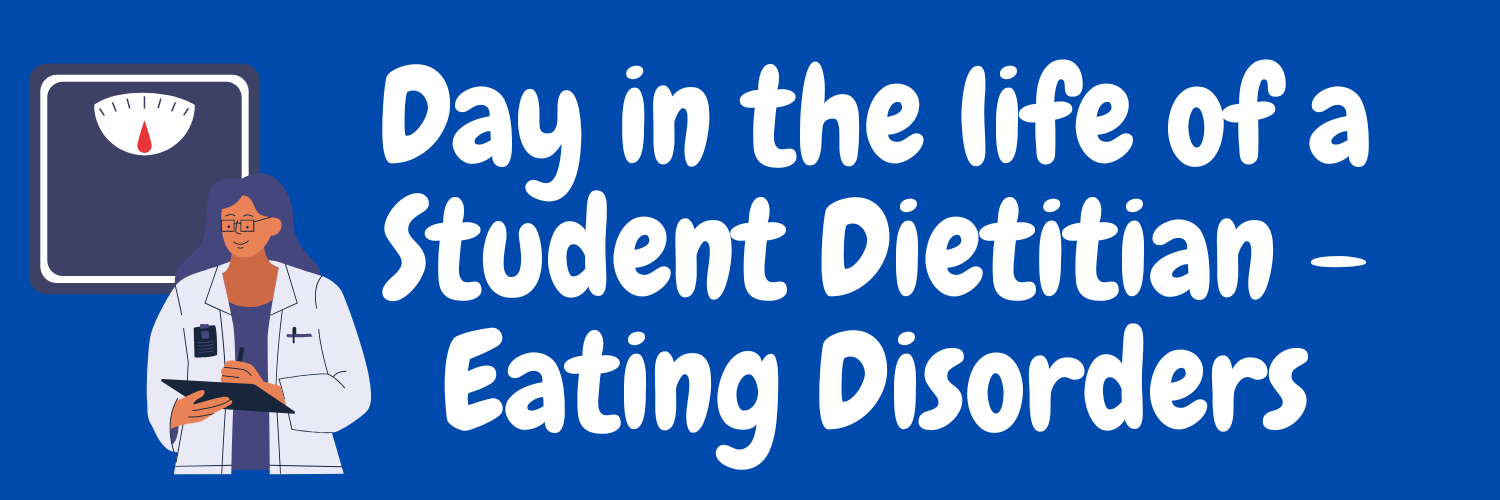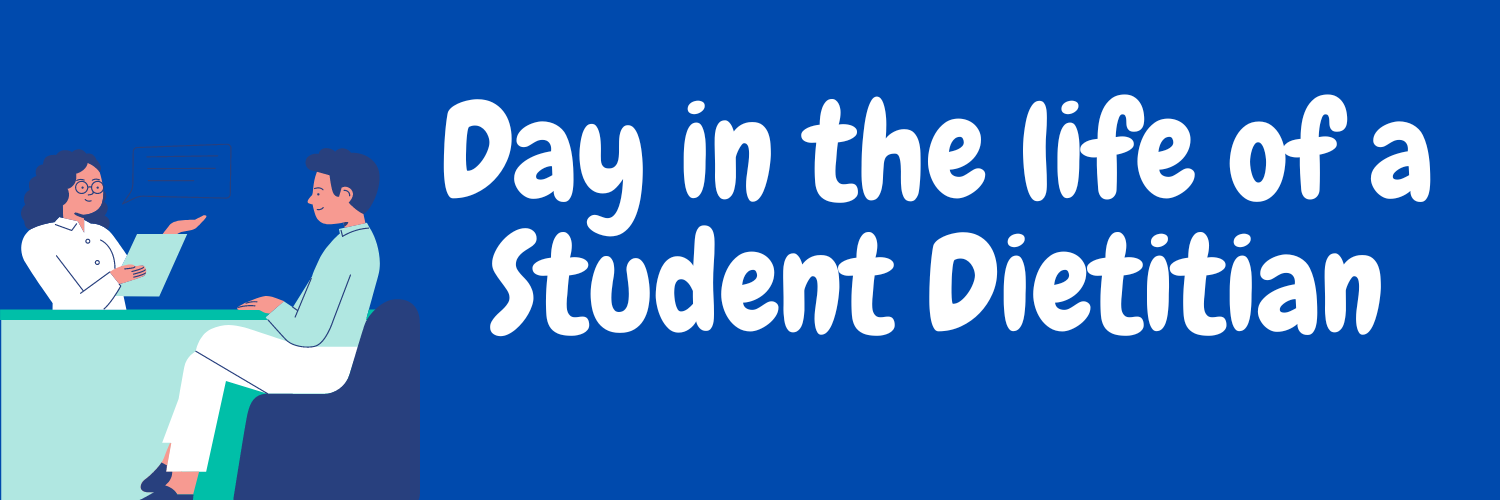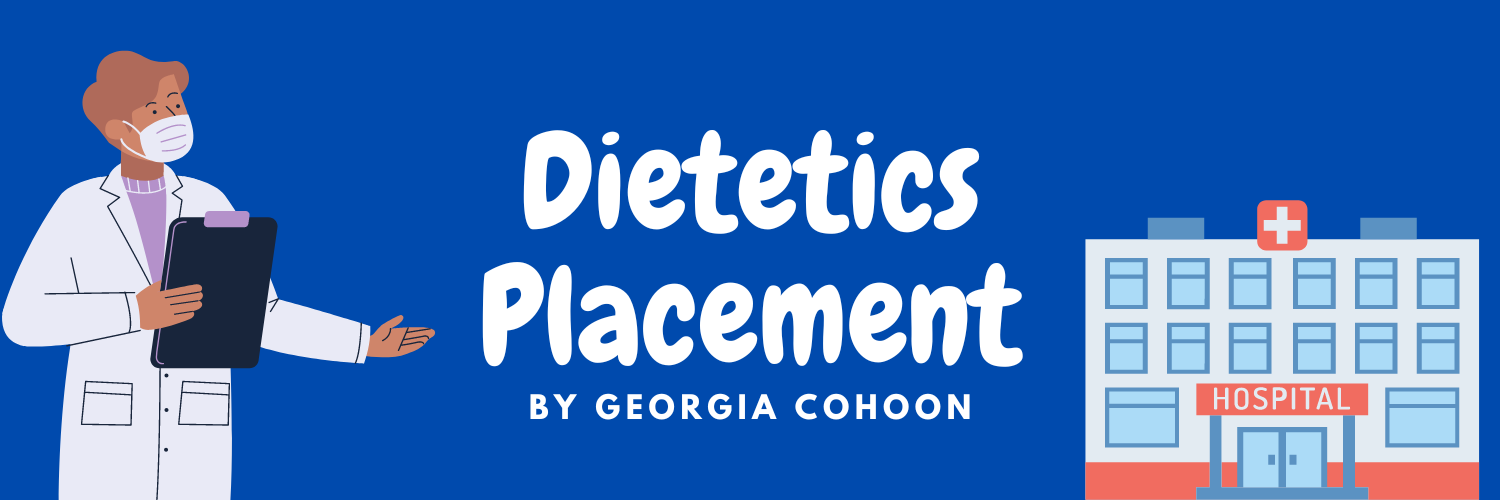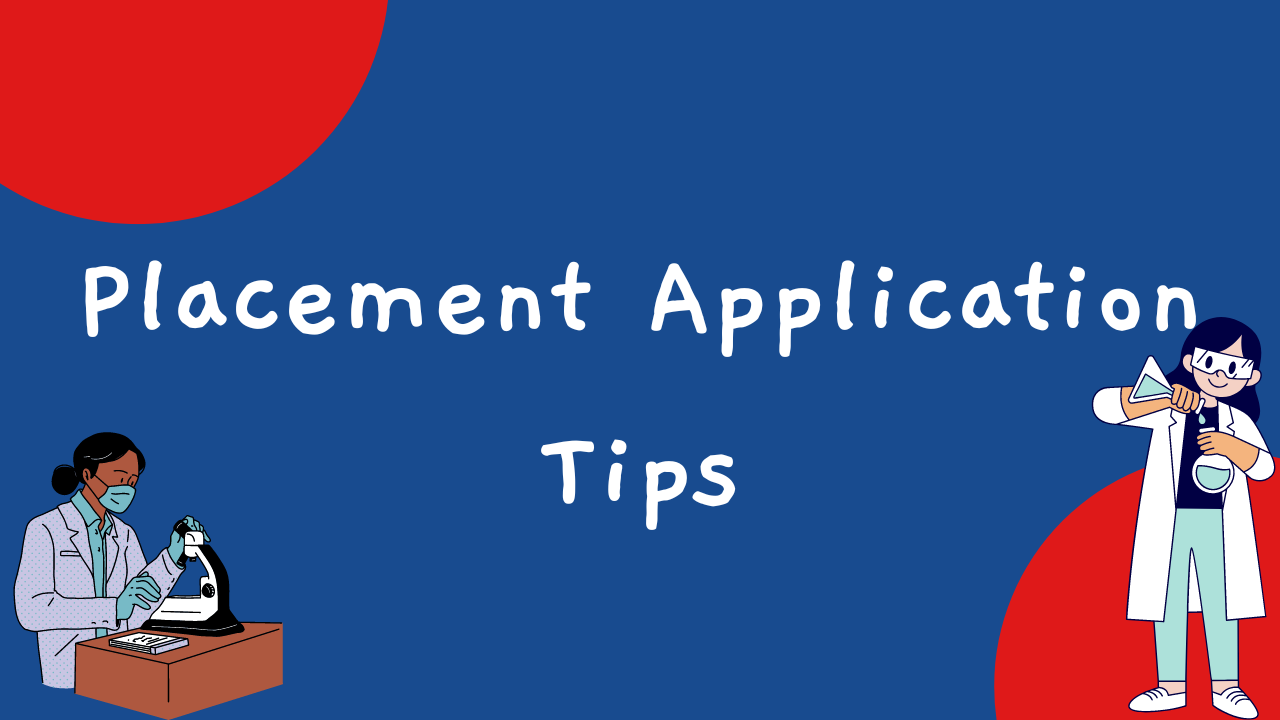Hi – it’s Georgia the Student Dietitian again! So on the last blog post I talked about what it was like to be on placement in a secure inpatient unit. I said I would also give some insight into my day in the life in an Eating Disorder unit – so here it is!
Background context – Eating Disorders is an umbrella term that can describe many different disorders such as anorexia nervosa, bulimia and others. The patients in my care ranged from 18 to 75 years old and covered all genders. There is lots of psychology often required within Eating Disorder services, so Dietitians work alongside other healthcare staff to provide a holistic form of care to patients. For my placement I worked across inpatient units (on a ward within a hospital), community, and day service. This gave me a really good insight into all of the different areas you could work in as a Dietitian in Eating Disorders.
The different types of services: So i mentioned that there are three different types of services. I am just going to explain a tiny bit about each one so that you are aware of the difference.
Inpatient services – This is where patients are on a ward and have their own rooms. They are monitored and supported 24/7 by staff and are sometimes allowed leave off the ward. Patients on these ward often get their weight and bloods monitored more often and can be put onto a feeding tube if necessary.
Community – This is a service which manages and supports Eating Disorder Patients within the comfort of their own homes. Dietitians will often visit patients where they live and provide advice and support around meal plans and cooking facilities etc.
Day service – Day service is a service which allows patients to attend a clinic for the whole day or half the day to have their meals and be supported by cooking for themselves. So patients tend to spend the whole day at the service and they will have supervised breakfast, lunch, dinner and 3 snacks. They are also supported to cook for themselves in order to mimic what it would be like for the patients at home.
My day to day experience:
As all of the services were very different, I unfortunately do not have enough writing room to describe all of these (plus I think you would probably get bored!). Therefore, here is a day in the life of a student on an inpatient ward….
Morning: I usually arrive at the hospital at 9am to prepare for the day. The Dietitians have their own office where they can produce resources, write up notes and host team meetings with other healthcare professionals. The start of the day I would usually read about on patient backgrounds and fill in my patient notes based on what I can already access (for example recent weights and blood results). I would then find out what diet plan they are currently on and assess whether this would need changing (diet plans are often progressed step by step to gradually increase intake). After this, I would then usually see around 2 patients for lunch to discuss their progress and come up with future action plans.
Afternoon: After the patients (and staff) have their lunch, we usually continue consultations with patients throughout the afternoon. We do have to be careful to not interrupt snack times however as this is obviously a very important part of their day. Often patients are very visibly upset during consultations as the last thing they want to discuss is food, so showing lots of empathy and understanding can really go a long way during these sessions. Again, my communication skills in this sector definitely developed further as it was very different to what I had learnt at Uni! After my consultation sessions, I would then make any changes to diet plans if this was necessary that day and would add this to the patient notes. I would then head home for a good sleep as I am usually very tired by the end of the day!
As always, if anyone has any questions about what it is like to do Dietetics and what placement is like, please leave a comment! Thank you 🙂
